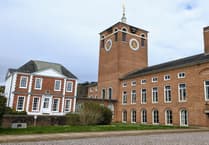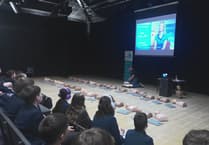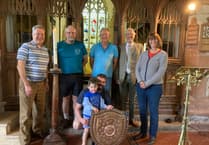WBB Minerals has said it can generate most of the electricity it needs for its Bovey Basin clay operations if it is given permission for a radical new processing plant. The firm has applied to Devon County Council to extend its planning consent for a new processing plant at the company's Rixey Park site at Kingsteignton. The plant will allow the company to transform clay that is currently regarded as waste material into high-tech lightweight absorbent products which can be used in a range of markets. 'The new plant will enable us to substantially reduce the amount of clay we currently tip by turning waste material into a valuable product,' said WBB resources director Gary Stringer. 'At the same time, the excess heat produced by the process will be captured and used to generate enough electricity to make much of our Devon operation self-sufficient in terms of energy supply. 'There is also the potential to export excess electricity back into the grid.' Mr Stringer said that the company's plans came at a time when the cost of fuels was rising sharply and the debate on future means of energy generation was developing a sense of urgency. 'What we are planning could be the start of something interesting,' he said. Planning consent for the new plant was originally granted in 2001, shortly after which WBB underwent a merger and restructuring. The original consent stipulated that work on the plant must begin by April 2006. The company now hopes to extend this permission and is currently looking into potential applications for the plant's products including cat litter and horticulture. Last year, WBB invested in a sand-processing plant which is now being used to create products for the construction and leisure markets. The company says this has substantially reduced the amount of material it has to tip by utilising surplus sand extracted as part of ball clay extraction.



